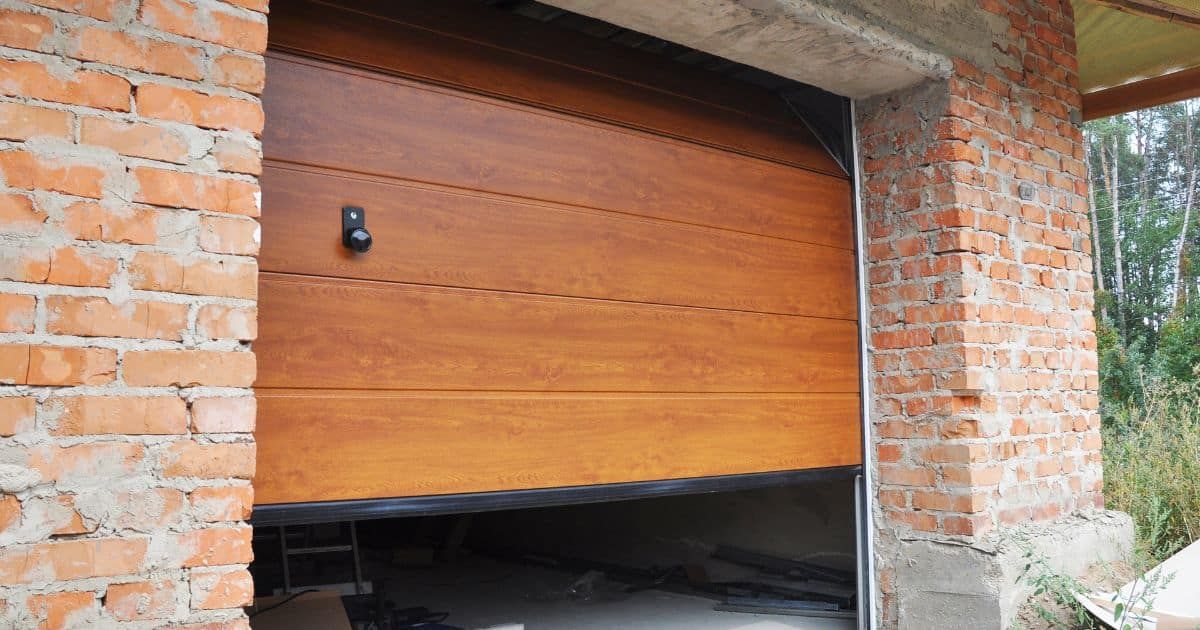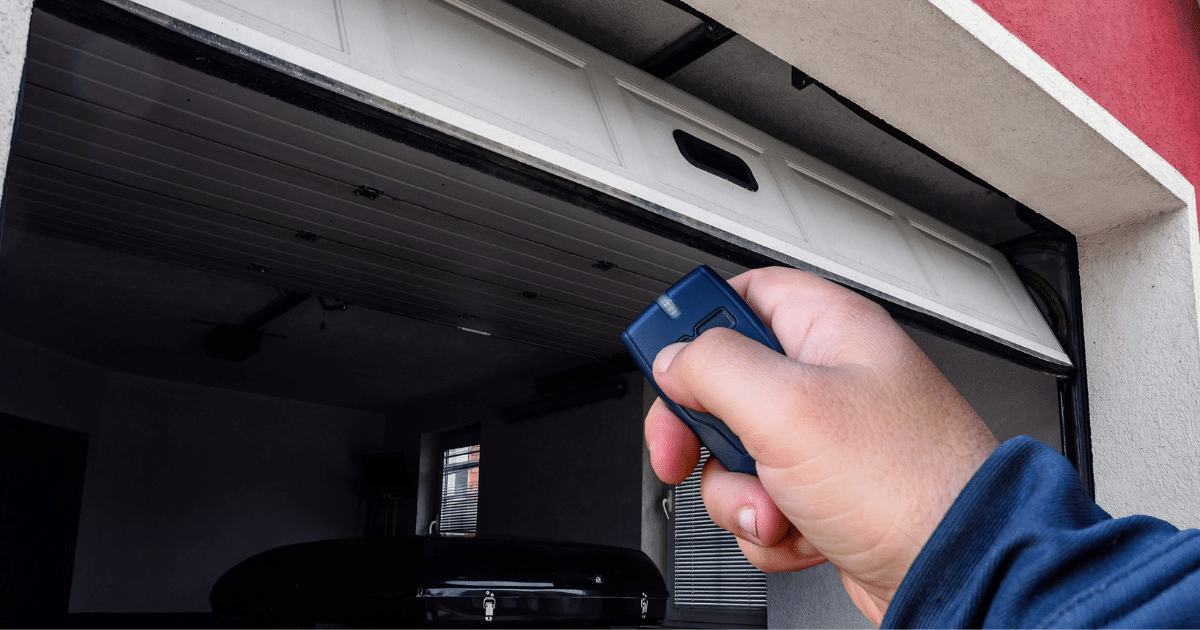Why Does My Garage Door Open and Close By Itself?
As you grab your lawn mower from the garage, you notice that the garage door opens and closes on its own. It can’t be a ghost entering your home. Some complex issues in need of repair must have manifested. Gator Garage Doors explores what a garage door opening by itself might mean below.
Why Your Garage Door Opens and Closes on Its Own
When a garage door is operating correctly, it just opens and closes with your preferred control method. But a malfunctioning garage door is opening and closing without prompting or attempts to operate with your commands but fails. Let’s examine why your door might not work as expected.
Outdated Garage Door
Older garage doors might respond to a different motor unit’s controls, especially if the neighboring garage door is close by. See if your garage door is opening at the same garage door frequency as your next-door neighbor’s. Test it by asking your neighbor to initiate their garage door opening with a remote control.
Does yours respond with the same frequency? It’s time to update your door!
Triggered Safety Sensors
When your garage door is closing, does it suddenly begin opening again without fully shutting? The safety sensors might detect an obstacle and force the garage door to reopen at a specific frequency. No matter how many times you press the button, the opener still pulls the garage door back up at the same point.
Your garage door frame has two sensors on each side. The sensor eyes detect things that the door may otherwise crush. When these sensors detect an object, they trigger the garage door to reopen.
Check the threshold for pets, small children, and belongings that might interfere with communication between the sensor eyes. If you can’t find anything of note, wipe the sensor eyes to ensure they are clean. Clean sensors with nothing between them will allow the garage door to close.
Imbalanced Track
A damaged metal door track might be to blame if your garage door opens and closes on its own. The guide track keeps the door on its intended pathway. It cannot operate properly on a severely damaged track.
If you notice that your garage door starts opening back up at a particular point, inspect the track. Look for dents that prevent the panels from dropping. A garage door technician can realign or replace the tracks.
Damaged Wires
Your garage door opener depends on wires to receive and transmit signals about each opening and closing cycle. One loose connection can cause erratic operations. Check the wiring for the following:
- Exposed wires: Wires that have lost their coating are susceptible to moisture and other elements.
- Detached wires: Fully or partially detached wires can send mixed signals.
- Wires with holes: A nail or staple piercing might puncture a small gauge wire.
You can run to the hardware store for some electrical tape for a quick fix until your technician can repair the problem.
Shorting Electrical Circuits
Other issues that affect garage door opener performance are power outages and power surges. Disrupted electrical circuits can cause the opener to short circuit. Short-circuiting may result in erratic operations from the garage opener.
App Troubles
You might depend on a mobile app to control your garage door opener. Sometimes, software updates may send random signals to the opener. Other times, a cybercriminal may hack accounts and trigger malfunctions without your knowledge.
You can manage your limit settings on the app to minimize accessibility for other parties. Remember to reset your password and regularly check your app for changes, too.
Remote Control Problems
You might also rely on a remote control or wall-mounted keypad to manage when and how the motor unit operates. If your garage door randomly opens or only partially closes, you might need to reset the limit settings via the keypad or remote control. If you can’t access these settings with your devices, you can ask a technician for help.
Sometimes, the remote control button or a key on the wall-mounted pad might become stuck. The control button may constantly communicate with the opener and force it into an unending opening and closing cycle.
Often, homeowners can dislodge the stuck button by themselves. But sometimes, the remote control or the keypad itself has an internal problem that requires professional services.
Let Gator Garage Doors Handle the Troubleshooting Steps and Provide Regular Maintenance
Can’t figure out why your garage door opens and closes on its own? Gator Garage Doors can find the problem. Book a diagnostic panel service online to return to business as usual.

